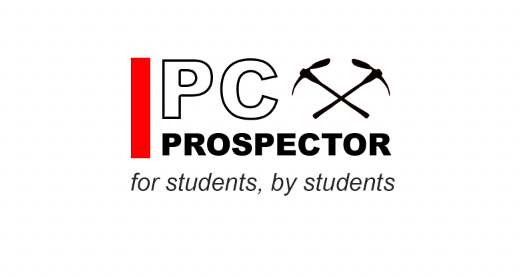Teachers Instructed not to Discuss Vaccines in the Classroom
On November 15th, 2021, Park City School District employees received a notice from Human Resources instructing teachers not to discuss vaccinations in the classroom.
According to multiple teachers, they were instructed to not initiate conversations about vaccines and to redirect conversations back to the classroom curriculum if the topic is brought up by students.
Park City High School (PCHS) science teacher Mary-Sue Purzycki indicated that the notice seemed to be directed towards elementary and pre-secondary school classes but was also to be applied in PCHS classrooms.
“I think it was geared towards lower grade levels and not towards secondary… I think it was the fact that somebody got upset that people were saying you need to get vaccinated,” said Purzycki.
The Park City Prospector has not obtained a copy of the notice, but multiple teachers have confirmed that the notice stated that vaccines are not part of the core curriculum, and should therefore not be a subject for discussion in the classroom.
However, for certain specialized health science classes at the secondary level such as Biotechnology, EMT, and CNA, vaccines are part of the educational standards.
“[The Biotechnology state standard] says ‘evaluate the ethical, legal, and social implications of biotechnology. For example vaccines, genetically modified organisms, cloning, and genetic engineering,’ so it’s in my core,” said Purzycki.

Even with vaccines being part of the curriculum, Utah State Laws provide ways for school districts to omit core standards if they wish.
According to “Utah Title 53E-2-301,” the state legislature intends that the mission of providing students the best education possible is to “be carried out through a responsive educational system that guarantees local school communities autonomy, flexibility, and client choice, while holding them accountable for results.”
Despite this, many of these specialized health science classes have required state or national-level exams that students must pass. These exams include questions that require a scientific understanding of vaccines.
Biotechnology is a “Career and Technical Education” (CTE) course that has a state-issued exam at the end of the school year. There are several core standards for this class that involve vaccinations, which means that questions about the topic could potentially end up on a student’s exam.
“[The school district wasn’t] really thinking about, honestly, what we teach, especially in different specialized classes like biotech, CNA, and EMT,” said Purzycki.
The CNA and EMT certification courses that are offered at the high school both have national-level certification exams, and according to Purzycki it is likely that questions on vaccinations could end up on these exams.
“On the EMT test there are definitely questions about vaccines and vaccinations because it’s part of what we do, and I’m sure it’s the same on the CNA test which is also a national exam,” explained Purzycki.
So while the state allows for school districts to remove certain parts of the curriculum, it does not mean that these topics will be removed from state and national level exams.
For non-biological science classes, this hasn’t become as much of a problem according to teachers.

U.S. Government and AP Psychology teacher Renee Pinkney said that given the current political climate, vaccines would not be a topic she would bring up in her Government classes even if it was allowed.
“If it were five years ago, six years ago and we had a pandemic, like when we had the swine flu… We talked about the swine flu in terms of the CDC recommendations and that kind of thing, but the climate wasn’t nearly so polarized,” said Pinkney.
Pinkney stated that there is a standard in her US Government class that revolves around following current events, but said that there are other topics she’d rather bring up in place of vaccinations.
With this being said, many teachers are still unclear as to whether this was a formal policy that has been officially adopted by the district or if it was merely a suggestion.
A KPCW article came out a few weeks ago, using the word “policy” when referring to the notice which stirred up some confusion among teachers.
“I don’t know if it’s been adopted as an actual policy that the district decided to take that language and say that as a district we are not going to teach x, y, and z. I had never seen that policy until I saw the KPCW article,” Purzycki stated.






